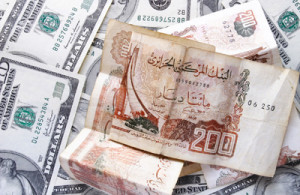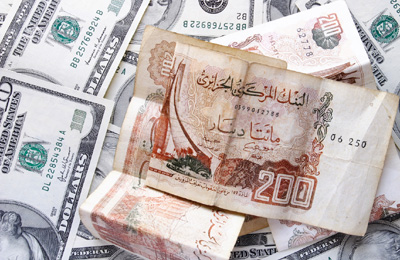 A team from the International Monetary Fund (IMF) led by Jean-Francois Dauphin which had consultations with the Algerian authorities warned that the North African country “continues to face important challenges posed by lower oil prices.”
A team from the International Monetary Fund (IMF) led by Jean-Francois Dauphin which had consultations with the Algerian authorities warned that the North African country “continues to face important challenges posed by lower oil prices.”
The statement released by the team noted that despite Algiers’ heavy dependence on hydrocarbon revenue, its foreign reserves are “still ample” even though they have been constantly shrinking since the collapse of oil prices.
Algerian authorities have reduced public spending and embarked on reforms as well as the diversification of the economy but the statement warned that fiscal consolidation will need to be sustained as oil prices are expected to remain low. Analysts are pessimistic that oil prices will ever go above the $100 per barrel.
The IMF statement highlighted that “a key challenge at this juncture is choosing a policy mix that will help the economy adjust to the oil price shock in a way that is sustainable and the least costly in terms of growth and employment.”
Unemployment reached 10.5% in September 2016 while inflation has been on a steep rise since last year.
Tax and subsidy reforms are very sensitive issues that the government has to deal with it as well as the improvement of the business environment to attract foreign investments.
The IMF officials signaled that “the overall strategy” that should be adopted by the authorities should ensure that reforms are coherent and “the burden of economic adjustment is shared equitably.” It also called for patience from the population because “structural reforms take time to bear fruit.”
Meanwhile, Abdelmoumen Ould Kaddour has replaced Amine Mazouzi at the helm of the state owned oil company Sonatrach. The Minister of Energy Noureddine Boutarfa urged him “to act responsibly and with full confidence to make quality changes allowing Sonatrach to evolve and flourish in a good business climate, conducive to initiative taking and decision making.”
